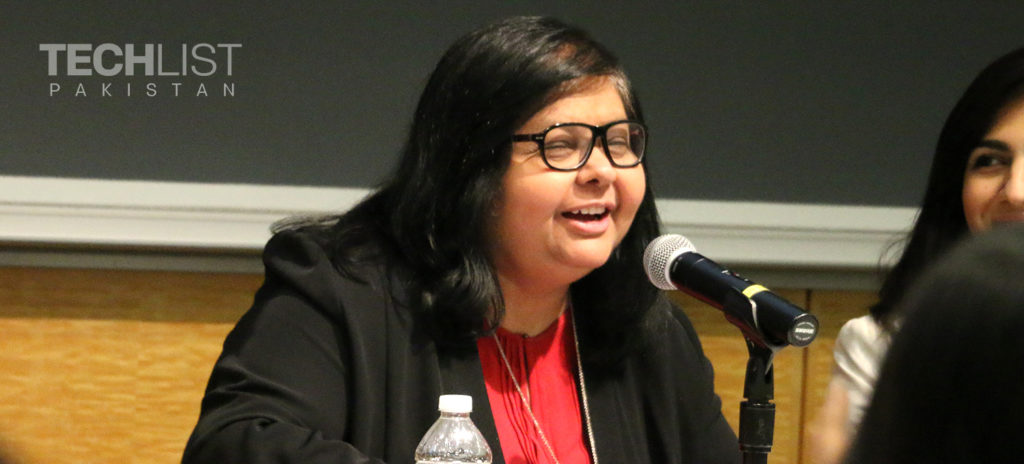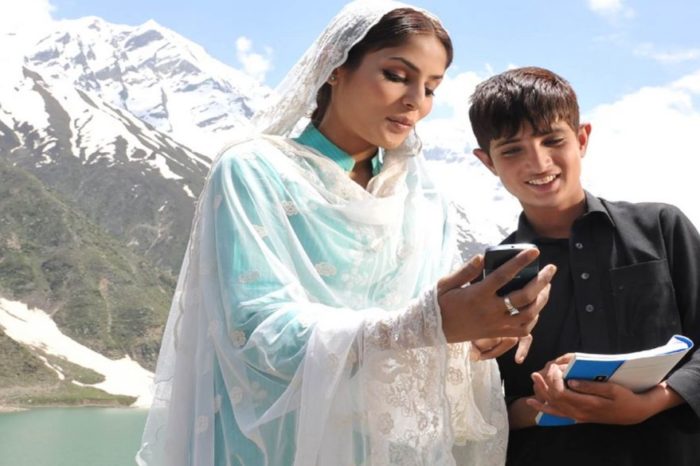Women’s Day Special: 5 Inspiring Women Shaping Pakistan Tech Industry

On International Women’s Day (March 8, 2025), we celebrate the remarkable women transforming Pakistan’s technology sector. Despite only 30-35% of STEM graduates being female, and many facing social and workplace challenges, these leaders have broken barriers, pioneered initiatives, and paved the way for future generations of women in tech.
1. Jehan Ara – The Architect of Pakistan’s Startup Ecosystem
A true visionary in Pakistan’s tech industry, Jehan Ara has played a pivotal role in empowering entrepreneurs and advocating for digital rights and women’s inclusion in technology.

As the former President of P@SHA (Pakistan Software Houses Association), she spent over 20 years advocating for the growth of the IT sector. She then launched The Nest I/O, Pakistan’s first major tech incubator, where she has mentored hundreds of startups and connected them with global investors, accelerators, and policymakers.
Jehan is also a staunch advocate for data privacy, cybersecurity laws, and gender diversity in technology. Her current project, Katalyst Labs, is a women-led startup accelerator, ensuring women entrepreneurs and technologists have a fair shot at success. She has received multiple international awards for her contributions to the growth of Pakistan’s digital economy.
2. Sadaffe Abid – Bridging Financial Inclusion & Digital Skills

A champion of economic empowerment, Sadaffe Abid is the founder of CIRCLE Women and has dedicated her career to financial inclusion and digital skills training for women.
She previously served as CEO of Kashf Foundation, Pakistan’s first microfinance institution for women, helping thousands of women gain financial independence through loans and business training. Recognizing the importance of digital literacy, she later founded Tech Karo, which provides coding and digital marketing training for women and young people from underprivileged backgrounds.
Through CIRCLE’s programs, she has enabled thousands of women to access online job opportunities, making financial empowerment a reality for many in Pakistan.
3. Sadia Bashir – Gaming Industry Pioneer

Sadia Bashir is revolutionizing Pakistan’s gaming industry as the founder of PixelArt Games Academy, the first institution dedicated to game development education in Pakistan.
Her passion for gaming and technology led her to create a structured learning platform where students, especially women, can learn game design, animation, and programming. Under her leadership, PixelArt Games Academy has collaborated with international gaming studios to ensure students receive global exposure and job opportunities.
Sadia’s academy actively promotes gender diversity in the gaming industry, ensuring at least 33% of its students are female. Her efforts have been recognized internationally, and she continues to mentor young developers, proving that Pakistani women can thrive in the gaming industry.
4. Maria Umar – Empowering Women Through Digital Freelancing

When Maria Umar realized how difficult it was for women to enter traditional workplaces due to social and family constraints, she founded Women’s Digital League (WDL)—a platform that connects women to remote work opportunities.
Through WDL, thousands of women have been trained in content writing, virtual assistance, graphic design, and digital marketing. The initiative has partnered with Upwork, Facebook, and other international companies, making it one of the largest women-led freelancing networks in Pakistan.
Maria’s efforts have not only provided financial independence to countless women but have also helped Pakistan’s digital economy grow by integrating more female freelancers into the global marketplace.
5. Ayesha Zaman – Expanding Pakistan’s IT Skills & Global Tech Trade

A key figure in Pakistan’s IT and skill development sector, Ayesha Zaman has made significant contributions in tech training, global IT trade, and women’s leadership.
She is the General Manager of CoWork @NASTP, a strategic tech hub recognized by the Government of Pakistan and led by the Pakistan Air Force. She also founded Skills Todo and Skills Gala, the largest IT skills and job placement initiatives in Pakistan, partnering with Meta, Microsoft, British Council, Punjab IT Board, and Tech Lift.
Ayesha is also the co-founder of Pakistan Tech Forum, which promotes Pakistan’s IT exports through trade delegations and business matchmaking. Under her leadership, Pakistan’s first-ever tech trade delegation to Malaysia (2023) and Singapore (2024) was successfully executed, strengthening international collaborations.
Recognized as a TechWomen Fellow (2022), Facebook Inspiring Woman Entrepreneur, and a Payoneer Global Icon, she continues to push for greater women’s leadership in Pakistan’s IT sector.
Why This Matters: Women in STEM & The Future of Tech in Pakistan
While 30-35% of STEM graduates in Pakistan are female, their participation in engineering (21%) and agricultural sciences (12%) remains low. More concerningly, 70% of female engineering graduates never join the workforce due to social norms, family expectations, and workplace biases.
Technology as a Culturally Acceptable Solution
For many women in Pakistan’s Muslim society, traditional jobs pose challenges due to mobility restrictions and family responsibilities. However, technology offers a solution—allowing women to run businesses, freelance, and lead companies from home.
- Remote work & freelancing (Upwork, Fiverr, etc.) help women earn without leaving their homes.
- Tech entrepreneurship enables women to create businesses online without traditional barriers.
- Government & private initiatives (Tech Karo, Skills Todo) provide IT training to prepare women for the global digital economy.
By empowering more women in tech, Pakistan can unlock billions in economic potential, drive global competitiveness, and lead in digital innovation—while aligning with cultural values.
Final Thoughts
The stories of Jehan Ara, Sadaffe Abid, Sadia Bashir, Maria Umar, and Ayesha Zaman prove that Pakistani women are already shaping the future of tech. However, more investment in education, workplace diversity, and digital inclusion is needed to fully bridge the gender gap in STEM.
While we have highlighted five remarkable women only, there are countless other women across Pakistan’s tech industry who are making valuable contributions, running businesses, freelancing, and supporting their families through technology. Though we cannot discuss every notable woman, their achievements inspire us all. On this International Women’s Day, Techlist salutes all the women of Pakistan in the tech industry—breaking barriers, driving innovation, and shaping the future.
On this International Women’s Day, let’s celebrate these trailblazers and continue working towards a more inclusive, tech-driven Pakistan.






